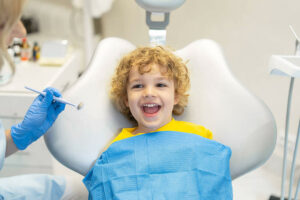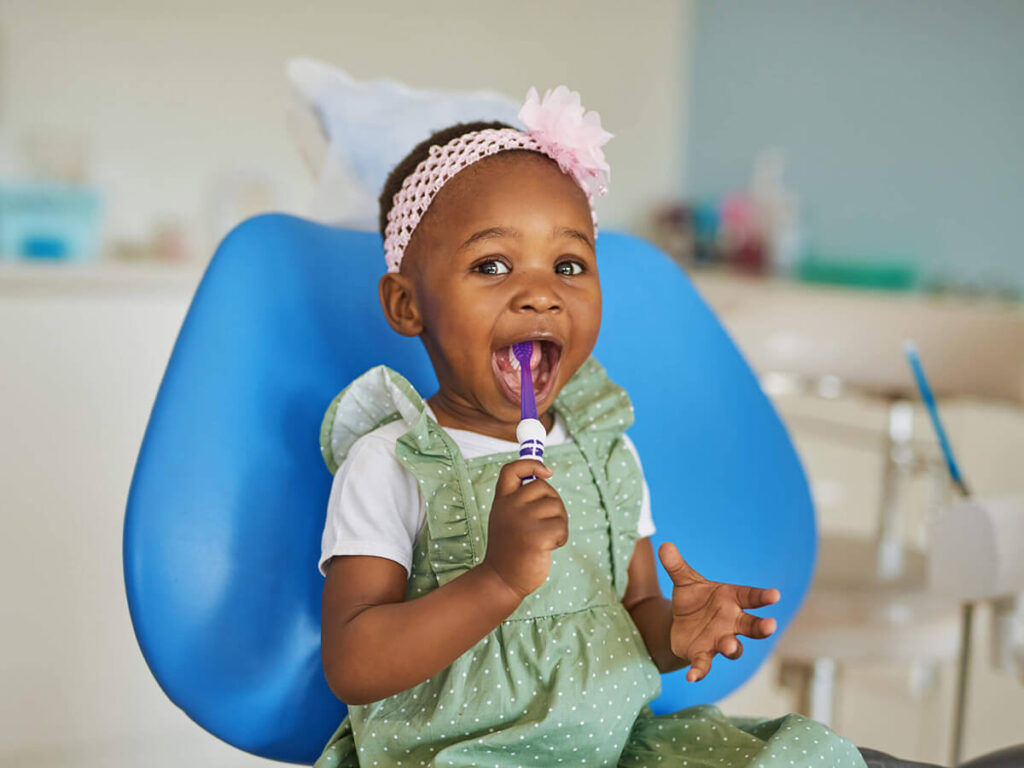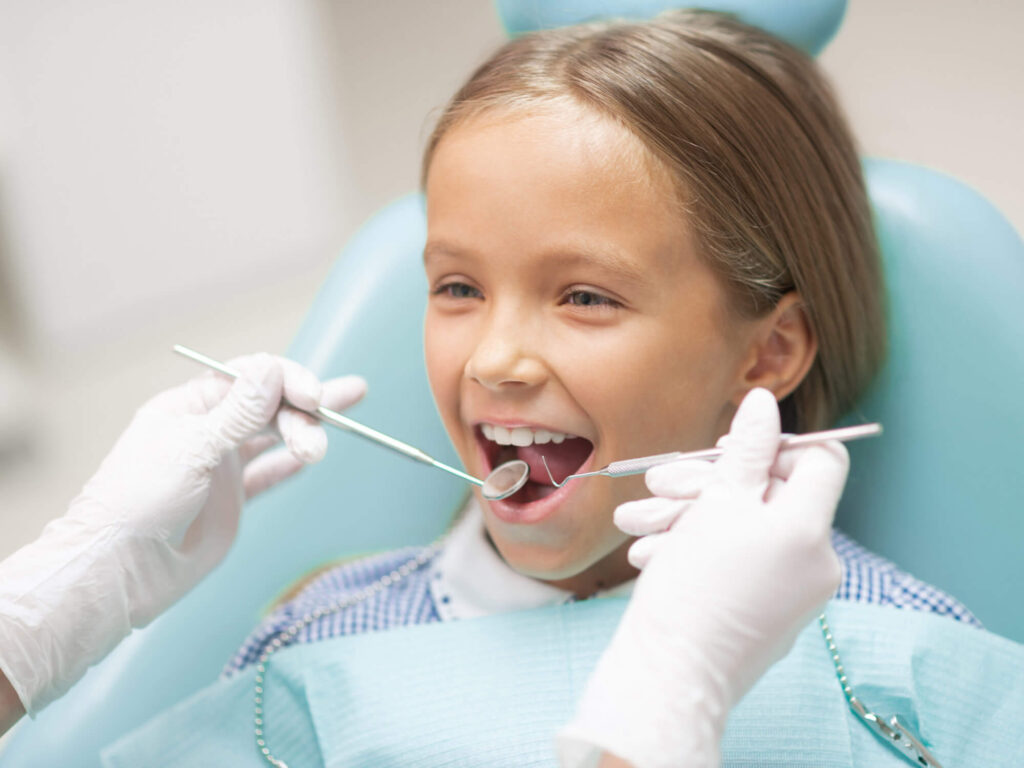Pediatric Dentistry
Receiving high-quality dental treatment is just as important for children as it is for adults. We take great pride in helping our younger patients achieve excellent oral health and pediatric dental services in the community.
Pediatric Dentistry
Taking care of teeth is an important aspect of keeping yourself healthy. Dentists will always share the same basic advice for maintaining your teeth’s excellent health and appearance such as brushing, flossing, avoiding certain foods, and visiting your dentist twice a year. But dental care for children will be relatively different.
Extra assistance and attention are required in looking after your kids’ teeth. Visiting the dental clinic — not to mention having to sit still in a chair while someone peers inside their mouth and uses different tools — can be a strange and even frightening experience for them, so it helps to find a professional who can expertly meet the needs of your whole family.
A trained and highly skilled dentist knows exactly how to put young patients at ease and make each visit to the clinic a positive one.


When Do Babies Start Teething?
Babies are born with all 20 primary teeth below their gum line. Usually, babies will get their first tooth anywhere from 6 to 12 months; there is no specific age when teething starts. The first teeth that usually erupt are the front two teeth on to top and bottom of the mouth. Most children will have all their primary teeth by the age of 3.
When your baby’s first tooth comes in, they likely will have sore and tender gums, causing them to be fussier. Other symptoms include increased drooling, less desire to eat solid foods, biting and chewing, bringing their hands to their mouth, cheek rubbing and ear pulling, and disturbed sleep.
If your child has their first tooth or is nearing their first birthday, then it’s time for their first dental visit. Our experienced team of pediatric dental professionals would love to see your child! Learn more about first visits for children and access new patient forms using the link below, or if you’re worried about your child’s baby teeth, contact our pediatric dentist office in Fargo, ND.
What is Fluoride?
Fluoride is a natural mineral found in our bones and teeth. It is also present in our drinking water, toothpastes, and mouthwashes because of its effectiveness at combating tooth decay and strengthening enamel. Even if your child receives fluoride through sources, such as drinking water, that doesn’t mean that additional treatment isn’t necessary or beneficial.
All children are at an increased risk for cavities because they have less dexterity than adults when it comes to brushing and flossing. This makes it more effective to remove all of the harmful bacteria that cause tooth decay. Fluoride treatment can be extremely effective when applied each time you bring your child in for a dental appointment, regardless of their age. According to the CDC, “Fluoride varnish can prevent about one-third (33%) of cavities in the primary (baby) teeth.”
The application process is quick and easy, requiring only a few short minutes. While your child is seated in the dentist’s chair, we will apply a fluoride varnish to the front and chewing surfaces of their teeth, coating them to ensure a proper layer of protection. After a few minutes, you and your child will be free to go.

-
What does pediatric dentistry include?
Pediatric dentistry includes using sealants to help prevent cavities and tooth decay on a child’s back molars. This proven preventive treatment works by applying a thin acrylic coating over the teeth and allowing it to harden, which keeps out unwanted bacteria and plaque that could otherwise harm the teeth.
At Majidian Dental, we provide a warm, fun, and friendly environment that will help your children relax and feel more receptive to the examinations and treatments.
-
What are the common issues of dental health in children?
Common dental health issues in children include tooth decay, cavities, and teething problems. Tooth decay is particularly prevalent due to frequent snacking and sugary drinks, which can lead to cavities if proper brushing and flossing habits are not established early on. Teething can also be challenging, with symptoms such as irritability, swollen gums, and discomfort as baby teeth start coming in. Regular visits to a pediatric dentist in Fargo, ND, are essential for maintaining your child’s oral health.
At Majidian Dental, our children’s dental services include preventive care like fluoride treatment to strengthen enamel and protect against cavities. Our Fargo pediatric dentist will provide expert guidance on fluoride treatment aftercare and ensure your child’s smile remains healthy as they grow.
-
When should I start brushing my child's teeth?
-
Is there any fluoride treatment aftercare my child should follow?
More Questions
If you have more questions about our pediatric dental services, please contact our office and we will be happy to discuss further.
